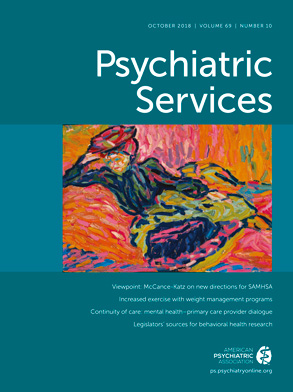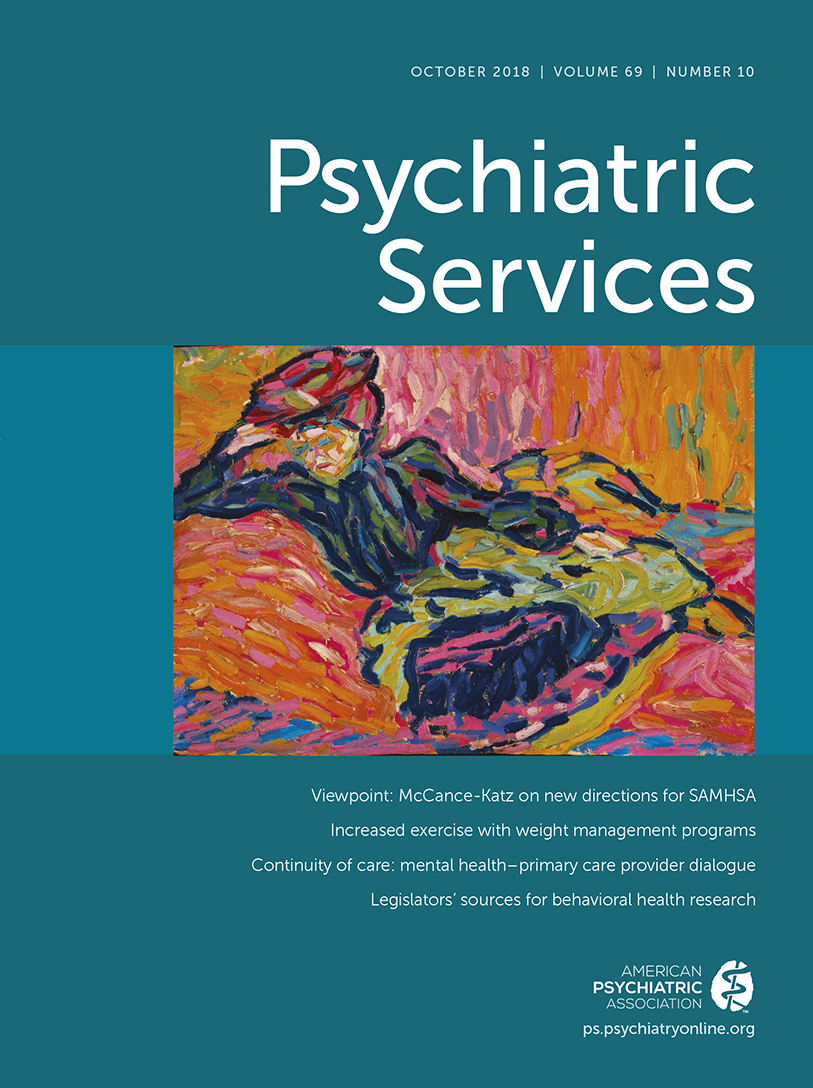TO THE EDITOR: Clinicians use medication histories for coordination of care, to assist in care decisions, and to prevent medication errors. Compiling a medication history is difficult and time consuming, requiring discussion with the patient, family members, other clinicians, and the patient’s pharmacy (
1). Outpatient electronic pharmaceutical claims data (EPCD) can improve the efficiency and accuracy of medication history collection and can be accessed when pharmacies are closed.
A statewide electronic medication reconciliation program, such as systems offered for controlled substances, would clearly benefit clinicians (
2). Although programs are available that provide access to EPCD, the fees associated with their use may be financially limiting, and available records date back only one year (
3). Given that Medicaid serves approximately 20% of Americans (
4), utilization of Medicaid Web portals to access EPCD could be a timely and cost-effective mechanism to provide insight into a Medicaid recipient’s current and past medications, adherence to treatment, and reasons for patient-reported treatment failures.
We surveyed Medicaid offices in all 50 states and the District of Columbia by phone in September 2017 to determine the availability of Web portals that enable EPCD access to providers. In addition, we examined state Medicaid Web sites for availability and ease of acquiring EPCD. The eight states with confirmed access to EPCD are Illinois, Iowa, Kentucky, Montana, New York, North Carolina, Tennessee, and West Virginia. Six of these states have Web portals usable by any Medicaid-enrolled provider, including pharmacists, nurse practitioners, physician assistants, and physicians; the other two states, Iowa and Tennessee, could not confirm which provider types were allowed access. Most Web portals providing EPCD offer information such as the medication name, strength, quantity, fill date, days’ supply, pharmacy, and provider. Although Medicaid provider Web portals are available in every state, whether EPCD is accessible through many of these portals is unclear. For the states with unconfirmed access, the overall knowledge of EPCD availability was limited among Medicaid representatives, availability was unclear on state Web sites, or both.
Although access to EPCD is largely helpful in obtaining collateral medication histories for people who receive Medicaid, there are limiting factors. Medicaid Web portals do not present EPCD for prescriptions paid through private insurance or obtained without insurance, medications used during hospitalizations, and claims filed while the portal is under maintenance. In addition, EPCD may not correlate with a patient taking a medication as prescribed. EPCD as a source of information for medication histories is best utilized with patients who are adherent with medications or as adjunctive information to supplement that obtained from patient interviews.
The ethical issues surrounding the use of EPCD exceed the scope of this letter but have been described in the context of prescription drug–monitoring programs (
5). Use of EPCD for medication reconciliation purposes should be done with patient consent, except under emergency situations as outlined in HIPAA, §164.510. Finally, clinicians and developers of Web portal technologies should exercise necessary safeguards to protect personal health information.
Use of EPCD would likely improve the medication history collection process, reduce medication errors, increase informed prescribing, and save health systems resources. We hope our letter expands utilization of EPCD and encourages providers to contact Medicaid offices and public officials in states where EPCD is not accessible in an effort to make access to medication histories more widely available.

